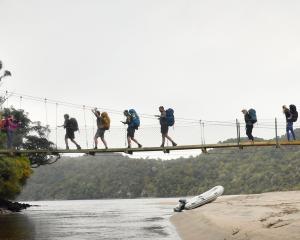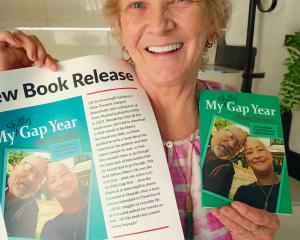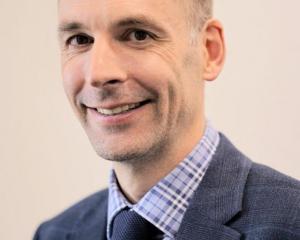
The ripple effects of a fatal crash spread far wider than just those who lose their lives. There are parents who bury their children, drivers who face a lifetime knowing their actions have killed, and people who were simply in the wrong place at the wrong time. In the first of a three-part series, Daisy Hudson speaks to two people whose lives have been forever changed by death on the roads.
Nicola Henare was strong, confident, loving.
READ MORE:
A skilled ice hockey player, the 19-year-old had a bright future with her partner, Shaun Hattrill (21).
But a crash near Mataura on January 26 snuffed out that future, and changed the lives of their families forever.
Nicola’s mother, Tania Henare, is now preparing for the first Christmas without her youngest child.
It will be one of many sad markers in a year of firsts — the first birthday without her, her first niece and nephew being born.

"We’re not sure how we’re gonna get through Christmas," she said.
The trauma for Nicola’s family began when her mother received a phone call.
"Her best friend rung us crying and said ‘is it true, is Nicola dead?’. And we were like ‘what the f... do you mean?’."
What followed was a flurry of phone calls to try to find out what had happened.
In the meantime, people were posting about the crash all over social media. It took a couple of hours before police confirmed the news they were dreading.
"It was pretty devastating."
The aftermath also added to the grief.
Ms Henare felt her tikanga was not respected, from her daughter’s body being moved in the dark to a fight over whether an autopsy was required.
"Even having to have that argument, while they’re pushing my kid into the chiller ...
"Our children were held under armed guard in Gore, because of evidence.
"It’s that s..., your children are reduced to facts.
That same tikanga was what helped her family get through that time.
"Our belief is that when your number’s up, your number’s up. The only certainty that you have in life is you’re gonna die."
The other saving grace, she said, was that Nicola and Shaun died together.
"The Maori belief is that our afterlife is as important as our lives, and we truly believe that we talk to our dead and we carry our dead with us forever."
The family, including Nicola’s older brothers, took the view that if they did not live their lives to the fullest, their sister would have died for nothing.
"We have to live for her, we have to be better for her," Ms Henare said.
Two people, including a teenager, were charged over the single-vehicle crash and are going through the court process.
After the first court date, Ms Henare had a breakdown and took some time off work.
"No-one’s a bloody winner; everybody loses. Me and my sons want no further harm."
She had brought her children up with a "do the crime, do the time" attitude.
That was particularly relevant when you take into consideration Southland’s driving culture, she said.
There was a mentality of "she’ll be right".
But people had to be prepared for the consequences, for the guilt, the pain, the anguish.
"You need to be prepared to stand there and tell someone you killed their children."
The Otago Daily Times has launched a three part series, Not Coming Home, which examines the South's horror road toll. This year Otago has had the highest number of road fatalities since 2007 and 11 lives have been lost in Southland. As people around the South hit the road over the holidays, there is a simple message - keep alert and get home safely.
On Monday police reporter Daisy Hudson will report on the officers who deal with death on our roads and the toll it takes on them. On Tuesday she will explore the long, painful and traumatic aftermath of serious crashes and talk to Dunedin medical staff, as well as a brave woman whose head injury 30 years ago forever changed her life.












